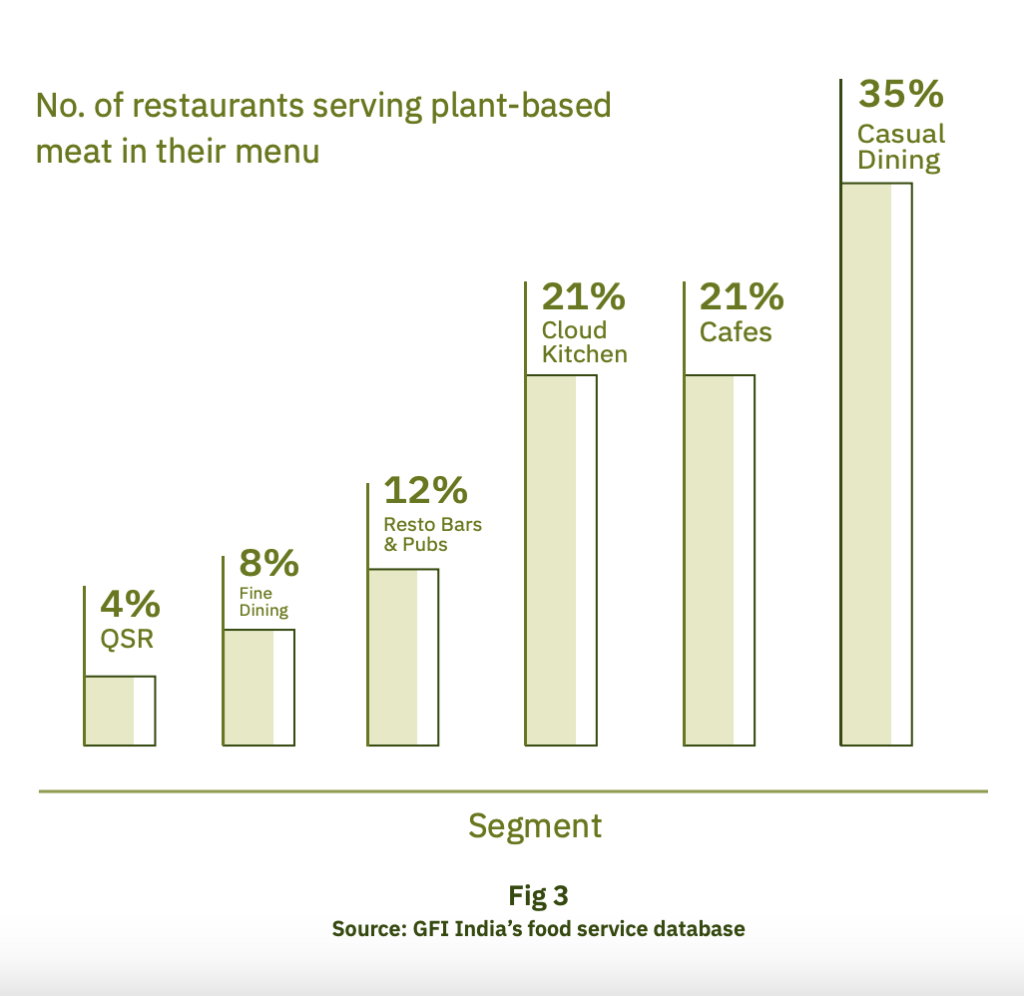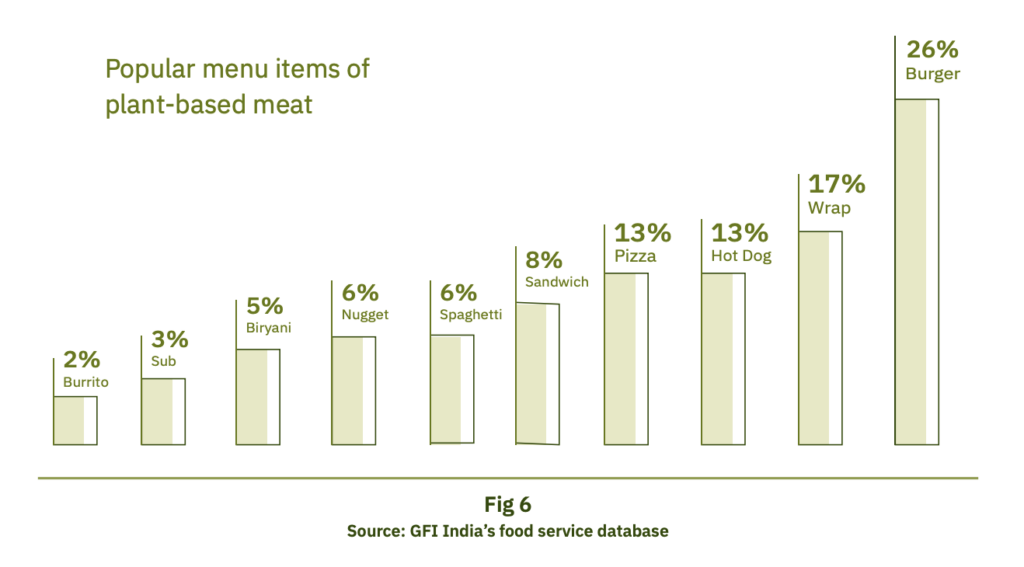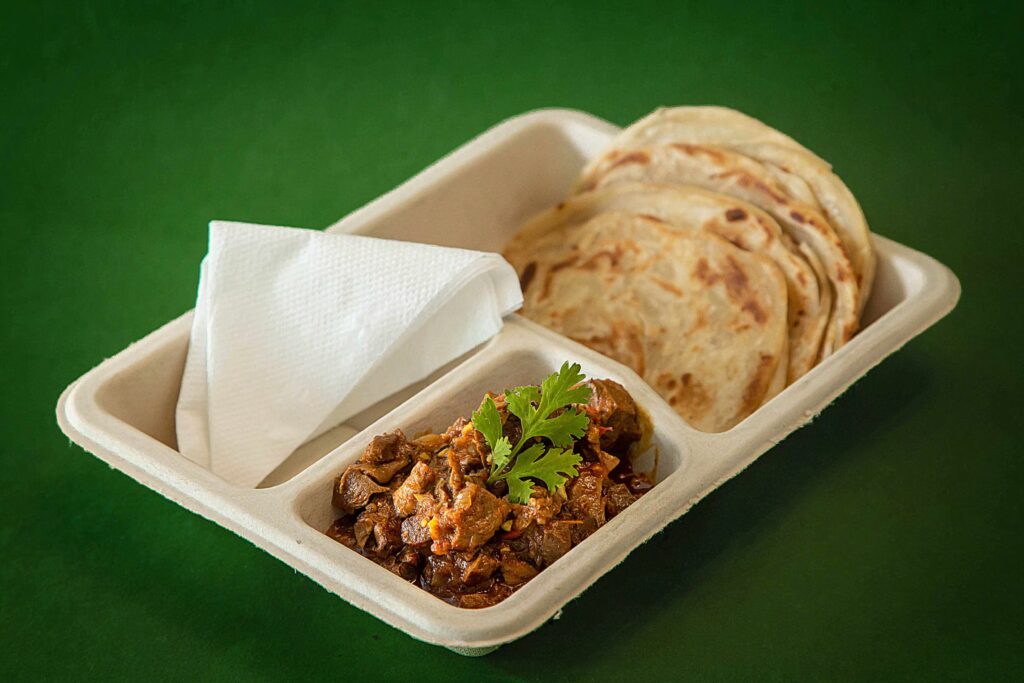‘Lack of Demand’ Keeps India’s Restaurants Away From Plant-Based Meat – Here’s How to Solve It
6 Mins Read
India’s foodservice sector is a major opportunity for plant-based brands, but better education and menu integration are needed to increase consumer demand for meat analogues.
Low awareness and common misconceptions contribute to a lack of demand for plant-based meat in India, leaving a big foodservice opportunity gap for vegan brands.
That’s the conclusion of a new report by the Good Food Institute (GFI) India, which addresses the challenges hindering the potential of meat alternatives in India’s restaurant industry, and what companies need to do to overcome them.
Titled ‘The Next Course: Reimagining Smart Protein’, the report was unveiled at an event featuring representatives from McDonald’s, the National Restaurant Association of India, and hotel group InterContinental, as well as plant-based brands like Blue Tribe, GoodDot, Plantway, and others.
Following in-depth interviews with chefs, restaurant owners, marketers and industry leaders, GFI India found that plant-based meats need to be integrated into local cuisines to help position them as tasty and indulgent offerings on foodservice menus, and recommended strategies such as chef collaboration and consumer education initiatives.
“The food service industry has always played a key role in introducing newer cuisines and ingredients to Indian households and holds immense potential to drive the adoption of plant-based proteins among consumers as well,” said Sneha Singh, managing director of GFI India.
“India’s rich culinary heritage and dynamic dining out market make it uniquely positioned to lead a transformative shift in the way we eat and pave the way for a more sustainable and inclusive food ecosystem,” she added.
Cloud kitchens, cuisines and labelling in focus

By 2028, India’s foodservice industry is set to trail only the US and China, a growth fuelled by the rise of urbanisation, the demand for convenience, and lifestyle changes.
The GFI India report suggests that Mumbai is the vegan capital of India, home to 37% of restaurants serving plant-based meat across eight metropolises. Bangalore (20%) and New Delhi (19%) round up the top three.
Meanwhile, casual dining eateries account for 35% of all restaurants serving meat analogues, followed by cafés and cloud kitchens (21%) – the latter particularly offers enormous potential thanks to the rise in food delivery.
Cloud kitchens also serve more plant-based meat dishes on average (5.3) than casual dining establishments (4.9) and cafés (4.4), and represent the cheapest price for dishes with meat alternatives (₹357/$4.21 on average). In contrast, these dishes have a price tag of ₹665 ($7.85) in fine dining establishments.

Notably, the most popular ways to incorporate these proteins into dishes skew Western and snacky. Burgers and wraps alone make up 43% of these items, with pizzas and hot dogs accounting for another 26%. “Foodservice establishments can expand their appeal by integrating plant-based meat into local and regional Indian cuisines and dishes, thereby tapping into a broader consumer base,” the report suggests.
Similarly, labelling is a critical opportunity too. Half of these dishes are labelled as ‘vegan’, while under a quarter (23%) feature the term ‘plant-based’, despite research proving that consumers prefer the latter.
“Increasingly, positioning dishes as ‘high-protein’ and ‘plant-based protein’ is resonating with consumers,” the report states. “Taking the route of deprivation with terms like ‘meatless’ doesn’t appeal to consumers, particularly meat-eaters who are seeking taste and indulgence when dining out.”
What’s holding restaurants back?

The research identified two main barriers to the adoption of plant-based meat in the Indian foodservice landscape. The first is a “lack of consumer demand”: few locals are asking about or requesting these options when dining out, part of a larger consumer awareness issue in the country.
Even among those aware of these foods, there are questions about their relevance in their lives. Previous research by GFI India and Kantar has found that Indians over 45 feel alternative proteins are not relevant to them, adding to population-wide concerns about perceived ‘unnaturalness’, lack of clarity on health benefits, and taste and price.
Meat-eaters are already choosing conventional meat dishes, while both vegetarians and vegans have sufficient options available on restaurant menus, and so many foodservice establishments don’t see an incentive in educating diners and adding new meat alternatives to their plates.
Pranav Rungta, vice-president of the National Restaurant Association of India, noted: “The real barrier is not the lack of awareness but the need for a mindset change. With the foodservice industry growing and becoming more organised, educated restaurateurs who understand the impact of health, nutrition, and alternative proteins are also growing.”
The second hurdle is within the kitchens. While most chefs are familiar with the category, not everyone is well-briefed on the production process of meat alternatives, or their associated health benefits. Restaurants prioritising local and seasonal ingredients consider plant-based meats processed and not in line with their ethos or their target consumers.
“Busting myths around the processed nature of plant-based meat, along with creating awareness about the ingredients, processes, and health benefits, can help dispel some of the misconceptions,” the report reads. It further points to tie-ups with culinary schools and chef forums as a means to educate and improve awareness.
How plant-based meat brands can appeal to restaurants

There are a host of ways for Indian vegan meat manufacturers to land on restaurant menus. Prioritising taste as the main selling point and co-creating recipes with chefs should help, but so too will the understanding that each restaurant is different – customising products, recipes, pricing, and positioning to suit businesses’ needs is crucial.
For example, products that can be used as ingredients in their recipes are preferred over ready-to-cook formats. Chunks and minced meat tend to be the favoured products, as they can be used nearly as efficiently as their animal-derived counterparts in creating multiple menu items.
Leveraging the price premium at fine dining and specialty restaurants over QSRs could also be a winning strategy. That said, vegetarian dishes are usually always cheaper than meat-based options in India, so pricing plant-based meat on par with other vegetarian dishes at foodservice establishments is more prudent, both from a customer and restaurant standpoint.
Foodservice operators that have used plant-based meat have also taken issue with consistency in product sourcing, with some brands stopping supply without much notice, which needs to be addressed. Additionally, marketing these dishes together with the restaurant through on-table and in-store displays helps spread the word further.
“Plant-based brands have to look at themselves not as product suppliers but as solutions providers,” said Romil Ratra, CEO of Graviss Hospitality and co-founder of vegan company Plantaway. “Brands and food service businesses both have their own unique visions, and decisions on these partnerships often come down to price.”



